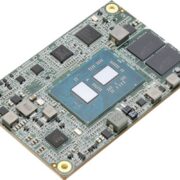Table of Contents
Key Takeaways:
- Event software has revolutionized the event planning industry by providing comprehensive tools for streamlined planning and execution.
- Integration of various functionalities within event software solutions offers significant time savings and efficiency enhancements.
- Automated features, such as attendee registration and data analysis, empower planners to host successful events with precision.
This article delves into how event management platforms have become the linchpin of successful event planning and execution. As we explore the transformative impact of these tools, it becomes evident that today’s event planners are empowered to perform at new heights of efficiency and effectiveness.
The Advent of Event Software
The world of event planning has undergone a substantial transformation with the advent of comprehensive event software. These digital solutions have simplified the intricate labyrinth of tasks associated with planning and executing events of all sizes. Gone are the days of juggling dozens of spreadsheets, paper checklists, and multiple communication channels. Event software is a central hub, integrating all these disparate elements into a cohesive, streamlined workflow. Event software has paved the way for efficiency, accuracy, and seamless operation, whether for a small business conference or a large music festival.
Comprehensive Planning Capabilities
At the core of event software is the rigidity of its planning capabilities. Tasks that once took hours, if not days, of meticulous coordination can now be automated or executed with a few simple clicks. From venue selection to scheduling, event software comprises tools to tackle event planning hurdles. Venue management functionalities enable planners to visualize the space, manage layouts, and coordinate logistics. Scheduling tools facilitate the organization of sessions, speakers, and activities, ensuring every minute of the event is accounted for with purpose and intention.
Seamless Attendee Registration and Engagement
One of the most tangible benefits of event software lies in its ability to redefine attendee registration and engagement processes. User-friendly interfaces allow prospective attendees to register for an event within minutes, often with automated confirmation and communication follow-ups. Beyond the initial sign-up, event software platforms commonly include features to enhance attendee engagement: networking functionalities, personalized itineraries, and interactive maps are just a few examples. When participants feel connected and fully informed, the result is a more dynamic and engaging event experience.
Real-Time Communication and Updates
Communication is the heartbeat of any event, and keeping all parties informed in real-time is paramount. Event software provides a centralized communication channel for event planners, vendors, participants, and speakers to exchange information instantaneously. With capabilities like push notifications and live updates, event stakeholders can remain apprised of last-minute changes or important announcements, minimizing confusion and maximizing coordination.
Data-Driven Insights and Analytics
In the quest to host successful events, data is an undeniable asset. Event software often has analytics features that track various data points, from attendee demographics to session popularity. By harnessing these insights, event planners can make informed decisions that shape future events. Post-event analytics are key to understanding what worked well and what can be improved, providing a roadmap for continuous refinement and growth.
Vendor and Inventory Management
Managing the myriad of vendors and inventory necessary for an event is a task that can easily become overwhelming. Event software alleviates this stress with tools that manage contracts, track payments, and coordinate logistics. With inventory features, planners can keep an accurate count of supplies, ensuring that every element, from audio-visual equipment to catering, is accounted for and ready for the big day.
Marketing and Promotion Integration
Marketing plays a significant role in the success of an event, and event software intertwines effortlessly with promotional strategies. Automated marketing tools within the software can disseminate event information across social media platforms, email lists, and websites, broadening the event’s reach and attracting a larger audience. The ability to manage registration, promotion, and engagement in one system simplifies the marketing process and creates a unified brand experience for attendees.
Financial and Budgeting Toolset
Keeping an event within budget while managing financial transactions can be complex. Event software solutions offer budgeting tools that transparently view all event-related finances. Features like payment processing, ticket sales management, and sponsor tracking are essential for maintaining financial control and ensuring the event delivers an ideal balance between quality and cost-effectiveness.
Feedback and Follow-Up Features
Gathering feedback is crucial for event improvement and fostering ongoing relationships with attendees. Event software includes integrated survey and feedback tools, allowing planners to capture participant experiences promptly after an event. Additionally, follow-up functionalities enable sustained communication with attendees, laying the groundwork for community building and ensuring long-term engagement.
Mobility and On-the-Go Access
Event planners are often orchestrators on the move, and mobile access to event software is a game-changer. Cloud-based software and dedicated mobile applications enable planners to manage events on the go, offering full access to the software’s range of features directly from smartphones or tablets. This mobility enhances the ability to manage logistics, perform updates, and solve problems from anywhere.
In closing, event software in event planning has gone from being a luxury to an absolute necessity. Its role in streamlining processes, providing valuable data, and fostering seamless communication cannot be overstated. As we witness these digital tools’ continued growth and sophistication, we expect to see even greater efficiency and innovation in the events industry. The era of efficiency has been redefined, with event software leading the charge in transforming planning and execution into an art form characterized by precision, connectivity, and a touch of digital prowess.













Comments